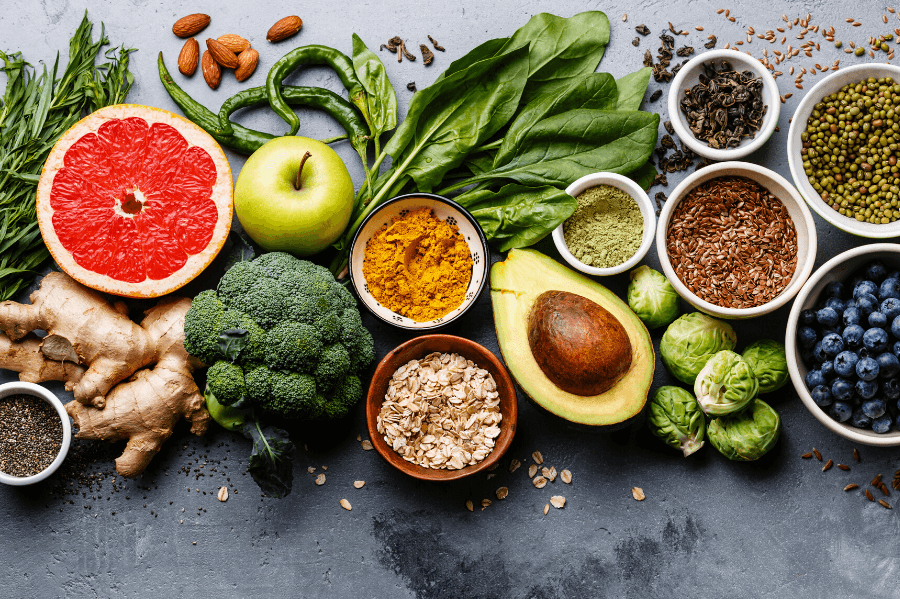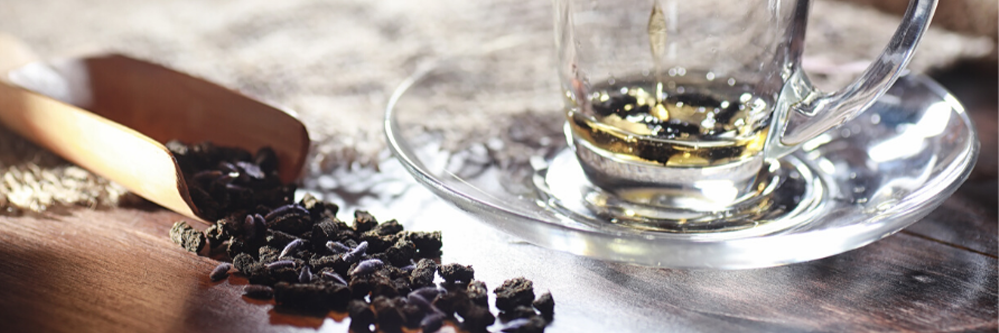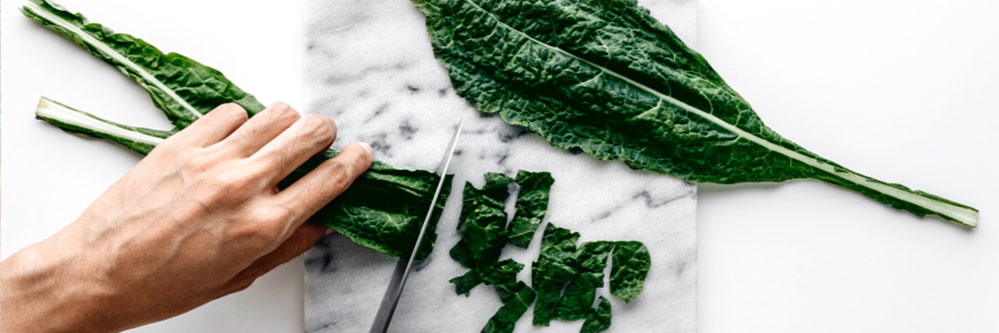
IBS (irritable bowel syndrome) takes many shapes and forms.
Symptoms such as bloating, heartburn and cramping can appear with little or no warning.
Even if you know what your triggers are, IBS can still be unpredictable and you gut health can feel far from perfect. There can often be days where symptoms feel worse than others. Even the length of time you suffer with your gut can vary with the flare-ups.
Put simply, IBS and it’s symptoms are unpredictable and you will want to do all you can to calm each episode as quickly as possible.
So, how can you calm an IBS flare up and improve your gut health?
4 Steps to help resolve an IBS (irritable bowel syndrome) flare up
Step One: Breathing and Meditation
Stress and anxiety may be making the symptoms of your flare up worse. Conversely, you may also see that your flare up makes your stress and anxiety worse.
This creates a vicious cycle. To break this viscous cycle, we need to focus on food choices as well as on calming the central nervous system.
One of the best ways to calm the central nervous system is through breathing and meditation practices. These work by taking you out of the ‘flight or fight’ response and back to the calming and restorative ‘rest and digest’ part of the central nervous system. This lowers stress hormones and restores healthy blood flow back to the gut.
A breathing practice you may find particularly useful is called diaphragmatic, or “belly breathing”. This is where you work to breath from the belly, rather than the chest. This activates the vagal nerve, a key communication pathway from the gut to the brain, which works to calm the central nervous system and can help calm symptoms of IBS.
Here is a great video tutorial on how to carry out this breathing practice.
Step Two: Support Sleep
You may also know that poor sleep can worsen your symptoms. Not only do food choices change when we’re tired but the gut becomes a lot more sensitive to pain.
Optimising sleep and even allowing yourself a nap during the day can help bring an overly sensitive gut back under control and improve gut health symptoms.
Step Three: Chewing for IBS
One area that is often overlooked is chewing. The way you chew your food has an impact on the digestive processes that takes place after you swallow. In actual fact, there are very few parts of the digestive process that we are in control of but chewing is one of them.
If you’re over in the stressed, ‘flight of flight’ part of the central nervous system, not only is the production of your digestive enzymes going to be impacted but you’re most likely going to be eating very quickly. If you’re eating quickly, you’re not going to be chewing.
Thinking about digestion as a process with specific events that influence how the gut functions can be helpful. Chewing signals to the digestive tract that food is coming which stimulates the production of your digestive enzymes. The mechanical act of chewing also breaks the food down in to small parts which reduces some of the work the rest of the gut has to do. If you can take some of this strain of the digestive system the flare up may calm down and gut health can improve.
Step four: The Diet Diary
Depending on how often you experience a flare up, you may find it helpful to keep a diet diary to track your symptoms. This can help identify any patters or specific triggers.
BONUS – Step five: Speak To An Expert
The wide variety of symptoms and causes means that it can be difficult to recommend a single approach. Instead its best to have a plan tailored to your specific needs. We’re happy to discuss your particular circumstances with a free consultation to work with you and understand your exact symptoms and causes.
What does an IBS (irritable bowel syndrome) flare up feel like?
When it feels as though your gut has taken control of your life, it can be hard to know where to turn. During a flare up, anxiety builds with the digestive systems which only makes things worse. A gurgling stomach, lots of bloating and needing to be close to a toilet can make it hard to think about anything else. Life is put on hold.
The general symptoms of IBS, bloating, diarrhoea or constipation, pain and cramping are unpredictable at the best of times. But during a flare up you may need to take time off work or cancel going out with friends. It’s frustrating and often painful.
More often than not, you may turn to Google to find specific things you can do to calm does the flare up. While we want to figure out a way to address the underlying imbalance in the digestive system, there are some simple things we can have in our IBS ‘tool bag’ to calm things down.
Back to top
What are IBS (irritable bowel syndrome) trigger foods?
Your flare up may be different from another person’s with a different cause. This is what makes IBS a unique condition. There are some common causes that seem to trigger each person.
Food is one of the most common triggers of an IBS flare up. Some of the most problematic groups are spicy foods as well as higher fat foods. One of the worst offenders is eating an Indian takeaway for example as this contains high amount of both. If you have IBS your gut may simply be more sensitive to these ingredients and so when they’re consumed in higher amounts a flare up follows.
The second common cause is our old friend stress. In this day and age, it may not take a lot to feel stressed, but this has a big impact on our gut health. This communication happens between the gut-brain axis which make our gut more sensitive to pain as well as lowering the number of digestive enzymes we produce. This makes it harder for you to break down food, putting a greater strain on the digestive system
Back to top
What should I not eat during an IBS flare up?
While some foods may not trigger your IBS when you gut is feeling calm, during a flare up some foods may make things worse. The gut may feel inflamed and so it can be like adding fuel to a fire.
What foods can trigger IBS?
As mentioned, fatty and spicy foods in particular can be an aggravating factor so avoiding takeaways and fast food can be key. Additionally, coffee can interact with receptors in the gut, leading to increased urgency. This is often the last thing we want to do during a flare up.
Alcohol can also make things worse. While it may calm the anxiety that comes with a flare up it may be worth avoiding as your symptoms persist.
Another group of foods contain resistant starch. This is a type of carbohydrate that is not digested by humans, but by the bacteria that live in our colon. This is done by fermentation that produces lots of gas, which during a flare up may be leading to bloating, cramping and diarrhoea. Reducing your intake of foods high in resistant starch can be particularly helpful. This are foods such as;
- pulses, sweetcorn, whole grains, green bananas and muesli that contains bran
- oven chips, crisps, potato waffles, fried rice (baked potatoes or boiled rice may be easier on your gut)
- processed food such as potato or pasta salad, or biscuits and cakes
You may also find it helpful to limit servings of fruit to 3 portions a day. A portion is around 80grams which translates to;
- 1 x apple/banana/pear/orange
- 2 x plums
- 1 x handful of grapes
Often choosing lower fructose containing fruits can be wiser choice. These are apple, berries and kiwi fruit.
Depending on how sensitive you are, even sorbitol, which is found in certain mints and chewing gums can worsen an IBS flare up. Opting for products sweetened with Xylitol could help to calm down the flare up.
Back to top
What should I eat during an IBS flare up?
Before we even think about food, if your IBS flare up is giving you diarrhoea, then replacing this fluid loss is important. Approximately 8 cups / 2 litres each day is a good amount to aim for. This will depend on the amount of fluid you’re losing vs the amount you’re getting through food as soups and vegetables do contain water.
Gut calming herbal teas can also be a good way to work on your fluid intake. The two you may like to keep close at hand are peppermint tea and ginger tea.
In IBS, we see that the nerves that line the gut can become overly sensitive. This leads to increases pain perception. Peppermint actually helps to calm these nerves down and reduce their activity. However, if you’re also experiencing heartburn, then this may be best to avoid.
Ginger tea has an anti-spasmodic action and may help to calm gut cramping. This can be made with ginger tea bags or even by chopping some fresh ginger into a mug and then adding hot water. Some even find chewing on ginger root to be more effective
In addition, to steering clear of the foods mentioned about, there are certain foods you can look to focus on when trying to calm down an IBS flare up.
As well as limiting the resistant starches, your flare up may be calmed by focusing on foods containing low levels of FODMAPs. Like resistant starches, these contain fibres that your gut bacteria love to feast on. You may even find that a low/reduced FODMAP diet helpful for calming your IBS symptoms when you’re not experiencing a flare up.
Lower FODMAP foods include;
- Bell peppers
- Bok choy
- Carrot
- Cherry tomatoes
- Cucumber
- Green beans
- Kale
- Lettuce
- Parsnip
- Spinach
- Aubergine
- Meat
- Poultry
- Fish and Seafood
- Eggs
You may have specific food triggers but even using this list can be particularly helpful. Working out your ‘safe food’ list for flare ups can be a handy element of your IBS ‘tool bag’.
How long does an IBS flare up last?
IBS flare ups can vary from one person to another and there isn’t a set period of time that a flare up can last. For those living with inflammatory bowel disease such as Crohn’s Disease or Ulcerative Colitis flare-up may last for weeks. In IBS you can expect this to be closer to days.
Not only can these IBS symptoms be uncomfortable but they can also impact mental health, leading to stress and anxiety.
While remaining calming during a flare-up of irritable bowel symptoms is important, being mindful of trigger foods that can trigger these IBS symptoms is also important. However, the aim of these diets is not a long-term approach, but a way to find more comfort and predictability in symptoms during a flare-up.
What makes IBS tricky to deal with is that your version of IBS is going to be different from someone else’s. This is why understanding your triggers and developing your own personal IBS tool bag is key. There is no one-size fits all approach to this condition. That’s why I offer a free consultation to anyone who feels they could benefit from some expert help.
While flare-ups may only last a day or two, how often they occur can be another factor in how much impact it’s having on your life. If your flare is once a month that will be having far less impact on your quality of life than if it were happening every week.
The aim of any holistic approach to IBS is both working on calming the symptoms when there is a flare but also working to address any underlying issues. This way was can move away from simply managing symptoms and closer to understanding the underlying disturbance in the gut. It’s by bringing this back into balance that we can resolve digestive issues and ultimately reduce the occurrence of flare ups. Back to top
How Do You Treat an IBS Flare Up?
Many people with IBS who have been to their doctor for medical treatment for IBS, are often told by their doctor that there is no proven treatment for this condition.
Depending on the site or location of symptoms as well as how long they may be been lasting, a doctor may refer to the gastroenterology department. This would be to see a gastroenterologist (a doctor specialising in the treatment of digestive diseases).
This medical viewpoint is often important to rule out other causes of the symptoms and other treatment options, but once these other causes (such as cancer of IBD) have been ruled out, this is common when the diagnosis of IBS is applied.
A doctor may prescribe medications to help calm symptoms (such as mebeverine) which for many can be a helpful form of care. This medical approach may however only keep symptoms under control until the medication is stopped and may not get to the actual underlying issue.
Conclusion / Key Takeaways
I do hope this has given you some idea and tips for what you can include in your IBS flare up tool bag.
There’s a lot of work that can also be done on addressing the underlying reasons for flare-ups. One of the main underlying factors that I see in my clinic is imbalances in the gut bacteria.
Instead of trying to work out that specific food that triggers your symptoms, rebalancing the gut microbiome can improve the strength of the gut. This ultimately reduces the need to be on any kind of restricted diet and improves digestive health.
If you’d like to learn more about these underlying factors download my How to Beat the Bloat eBook.
Sources for Reference
- https://www.niddk.nih.gov/health-information/digestive-diseases/irritable-bowel-syndrome/definition-facts
- https://www.niddk.nih.gov/health-information/digestive-diseases/irritable-bowel-syndrome/eating-diet-nutrition
- https://aboutibs.org/ibs-diet/ibs-diet-what-to-do-and-what-to-avoid.html
- https://www.niddk.nih.gov/health-information/digestive-diseases/constipation/eating-diet-nutrition
- https://www.ncbi.nlm.nih.gov/pubmed/21206488
- https://www.ncbi.nlm.nih.gov/pmc/articles/PMC4415769/
- https://doi.org/10.1038/s41395-018-0084-x
[/vc_column_text][/vc_column][/vc_row]










